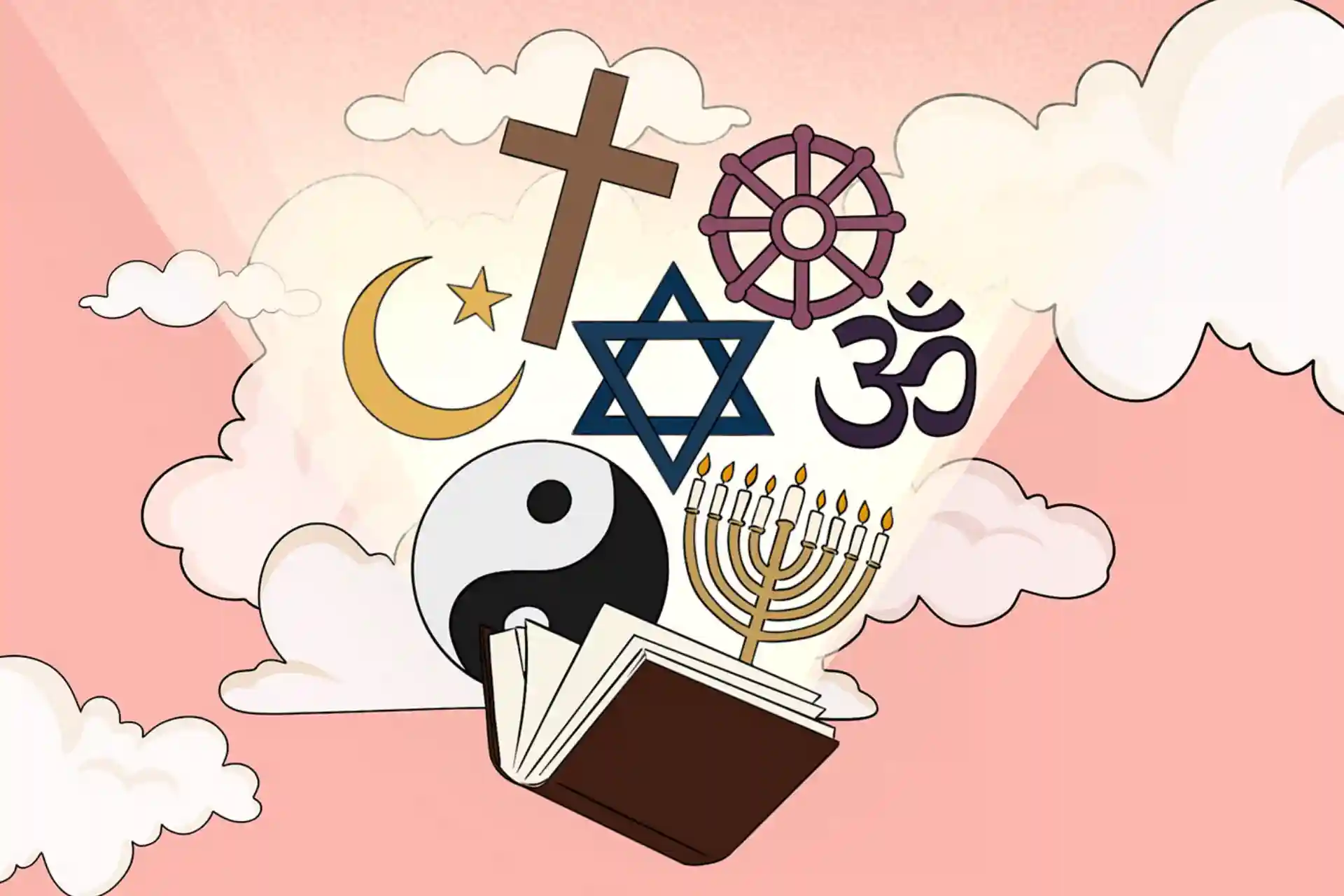Being a good person is not enough: Why do ethics need Islam? (Part 4)
The so-called "death of God" also shook the world, and also caused the return of gods and demons to the world order, who seek to gain power over our lives and again... continue to fight each other forever. Besides being atheistic or agnostic, modern secularism is indeed a form of polytheism in many senses. Modern secularism as a polytheism (polytheism) of values - in the article of Ovamir Anjum, head of the department of Islamic studies at the University of Toledo (USA), editor-in-chief of the Yaqeen Institute of Islamic Studies and founder of the Ummatics Institute.
Max Weber, another famous contemporary of Nietzsche and the founder of modern social sciences, foresaw the character of the coming century and, even though he was a secular person, could not avoid the worries and anxieties about the polytheism of modernity. One scholar writes of Weber: “His vision of polytheistic disenchantment is that an unequal disintegration of values gives rise to a multitude of alternative meta-narratives. Each of them, in its own way and method, claims to answer the same metaphysical questions that religion and science seek to solve."
The so-called "death of God" also shook the world, and also caused the return of gods and demons to the world order, who seek to gain power over our lives and again... continue to fight each other forever.
Besides being atheistic or agnostic, modern secularism is indeed a form of polytheism in many senses.
As we witness the decline of monotheism in modern society, people today are more and more inclined to return to old-fashioned superstitious beliefs and traditions.
The purpose of man's creation is to worship the Creator. When man does not recognize and worship God, he always begins to worship many gods, including gods of will and power. As Allah Almighty said:
"Tell me, who can guide a person who has taken his ego as his god, whom Allah knowingly led him astray, sealed his ears and heart, and pulled a veil over his eyes?! Don't you remember?!" (Josiah, 23)
Why should revelation guide morality? Hitler had morals too!
Muslims often tell their children stories about how low the Arabs were before Islam. Those Arabs had no liberating qualities. After all, it was customary for them to bury baby girls alive! What could be worse? But this simplistic view blinds us to the fact that even today, infanticide is widespread in many societies under various guises. In fact, in some polytheistic societies, children were sacrificed to the gods in rituals.
The demoralizing killing and exploitation of non-Western peoples is characteristic of the current imperialist world order. This is one of the modern realities. In modern liberal societies that worship human rights, many defend similar rights to kill unborn babies for sexual freedom, choice, or other reasons.
Pre-Islamic Arabs differed from modern western societies in that they were technologically backward and killed children after birth. However, like any society, they had many good qualities: they practiced and valued generosity, courage, greatness, etc. Nevertheless, the poor among them buried their daughters alive "for fear of starvation" (Isra, 31). They may have thought it was wrong, but they did not believe in the inviolability of God-given life. For example, many tribal and pagan societies did not regard human life as sacred, child sacrifice, burying or burning widows when a husband died, and welcoming strangers into their yard were common traditions.
More generally, let us imagine a scientist who believes only in rational arguments. It has the power to equip the entire earth with nuclear devices. You're a simple crew member on his spaceship, horrified to learn of his plan, and trying to come up with a plan to dissuade him. You tell him that killing innocent people is horrible, and he reminds you that a year ago you killed an entire colony of roaches in your kitchen without a second thought. What is the difference between human life on earth and water?
It is impossible to solve such questions about human life or other moral values philosophically. As long as the invisible does not prevail, human societies are left with only philosophy and thought . Today's modern Western moral theories, as noted above, are based on beliefs and concepts "smuggled" from the Abrahamic tradition - they copied their ideas, ideologies, without acknowledging their foundations. In Islam, as in earlier revelations, human rights were huququl ibad, literally the rights of God's servants. A close examination of the brutalities of the 20th century shows how dangerous this baseless morality is, which floats in the air like dry leaves on a dusty day. Millions of people were killed by modern nations in World War II and its aftermath for the neo-modern ideologies of progress, Marxism, and colonialism. Contrary to popular belief, most horrific acts are not motivated by immorality, but by some moral purpose.
For example, Hitler, rightly considered the greatest evil in modern times, committed genocide because of his strong commitment to certain moral beliefs. The eugenics movement, inspired by the Darwinian ideology that gave rise to atheism, was widely accepted among intellectuals and scientists of the late 19th and early 20th centuries. Accordingly, Hitler drew logical conclusions from moral-scientific beliefs that only weak intellectuals and philosophers dared to put into practice and tested them in practice.
In fact, if the rise of such beliefs and religious ideas had not resulted in hatred for the massacres committed by the Nazis, such ideas would have easily become a tradition today. Now there are signs that they are once again on the rise. The current Israeli genocide is an example of this. In addition, Europe and the USA, as well as the newly "modernized" countries such as China and India, have also begun to use such practices. In 1950s China, Mao justified his communist reforms with a sense of the greater good. Tens of millions of people starved to death in artificial famines during the Great Leap Forward, but such a tragedy was seen as necessary to achieve a more economically equal society and reduce future poverty. So can it be argued that such mass murder was a mistake? Doesn't China's global dominance and current population of over a billion justify it? Why don't such ends justify the means?
"What about ISIS?" you may ask. This terrorist outfit, which emerged as a result of two decades of war and sanctions imposed by the United States, has killed about 33,000 people, mostly Muslims in Iraq and Syria. However, this fact also helps to clarify our point. His actions were so horrific that even his parent organization Al-Qaeda eventually condemned them.
Almost all Muslim authorities agree that the group's actions are against Sharia.
No moral system can dictate human actions. Importantly, regardless of the real reasons that drive terrorist groups like ISIS, which include internal revenge and modern ideologies, and most importantly, the absence of a properly organized Islamic ummah authority like a caliph, the general public has recognized the group's tactics as un-Islamic. Now compare that to US Secretary of State Madeleine Albright. When asked about the deaths of half a million children as a result of the US war and sanctions on Iraq, and the circumstances directly related to the creation of ISIS, he proudly told television: "We think the price is worth it!"
Albright was elected a US senator shortly after this interview . In other words, the United States, the world's oldest democracy and champion of human rights, believes that half a million innocent Muslim children can be legally killed to protect its strategic interests. This is only a fragment of the wider history of secular liberalism.
By saying that there is no basis for declaring moral goodness for those who do not recognize God or ultimate truth, I and the philosophers who support this view do not mean that such people cannot behave morally or that they cannot resolve certain things philosophically. Moral feeling, nature is a blessing given by God to all mankind. Not acknowledging God does not make him disappear; it just confuses him in different ways and leads to different understanding of God. In short, the moral impulse we all have drives us in different ways. However, if it is not controlled by God's truth and regulated by His commandments, it will cause people to commit acts that are more brutal and terrible than animals.
There is no one who describes this better than our Prophet , may Allah bless him and grant him peace, who was blessed with eloquence by God: "I was sent only to complete good deeds."
Owamir Anjum is the head of the Department of Islamic Studies at the Department of Philosophy at the University of Toledo (USA), the editor-in-chief of the Yaqeen Institute of Islamic Studies and the founder of the Ummatics Institute.
To be continued. Read previous chapters
Being a good person is not enough: Why do ethics need Islam? (Part 1)
Being a Good Person Is Not Enough: Why Morality Needs Islam? (Part 2)
Being a Good Person Is Not Enough: Why Morality Needs Islam? (Part 3)



